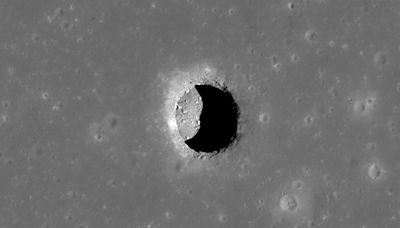Search results
Earth's history with time-spans of the eons to scale. The history of Earth concerns the development of planet Earth from its formation to the present day. Nearly all branches of natural science have contributed to understanding of the main events of Earth's past, characterized by constant geological change and biological evolution.
About 1,000,000,000 years ago, Earth had its first signs of life. Single-celled organisms consumed the sun’s energy. As a waste product, these cyanobacteria eventually filled the oceans and atmosphere with oxygen. Next, an oxygenated atmosphere paved the way for more complex life forms to exist.
The main topics studied in Earth history are paleogeography, paleontology, and paleoecology and paleoclimatology —respectively, past landscapes, past organisms, past ecosystems, and past environments. This chapter will cover (briefly) the origin of the universe and the 4.6 billion year history of Earth.
Oct 19, 2023 · We live on Earth’s hard, rocky surface, breathe the air that surrounds the planet, drink the water that falls from the sky, and eat the food that grows in the soil. But Earth did not always exist within this expansive universe, and it was not always a hospitable haven for life.
geologic history of Earth, evolution of the continents, oceans, atmosphere, and biosphere. The layers of rock at Earth’s surface contain evidence of the evolutionary processes undergone by these components of the terrestrial environment during the times at which each layer was formed.
May 28, 2024 · Geologic time, the extensive interval of time occupied by the geologic history of Earth. Formal geologic time begins with the Archean Eon (4.0 billion to 2.5 billion years ago) and continues to the present day. Modern geologic time scales also include the Hadean Eon (4.6 billion to 4.0 billion years ago).
The geological history of the Earth follows the major geological events in Earth's past based on the geological time scale, a system of chronological measurement based on the study of the planet's rock layers (stratigraphy).
6 days ago · One of the major objectives of geology is to establish the history of the Earth from its inception to the present. The most important evidence from which geologic history can be inferred is provided by the geometric relationships of rocks with respect to each other, particularly layered rocks, or strata , the relative ages of which ...
The main topics studied in Earth history are paleogeography, paleontology, and paleoecology and paleoclimatology—respectively, past landscapes, past organisms, past ecosystems, and past environments. This chapter will cover briefly the origin of the universe and the 4.6 billion year history of Earth.
Apr 30, 2024 · Most of Earth’s history took place in the Pre cambrian, which began when Earth was cooling and ended about 542 million years ago. Life began in the Precambrian, in the forms of bacteria and other single-celled organisms.






